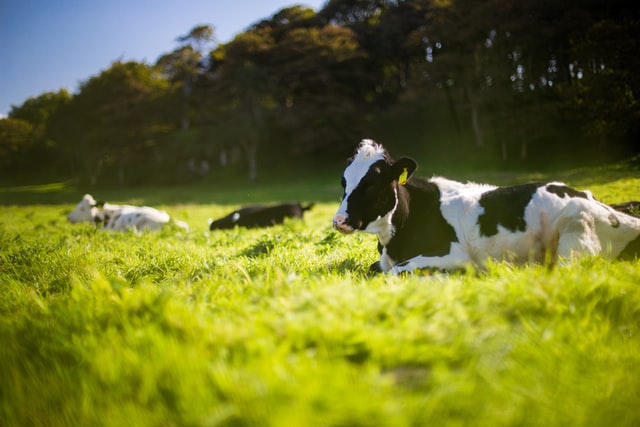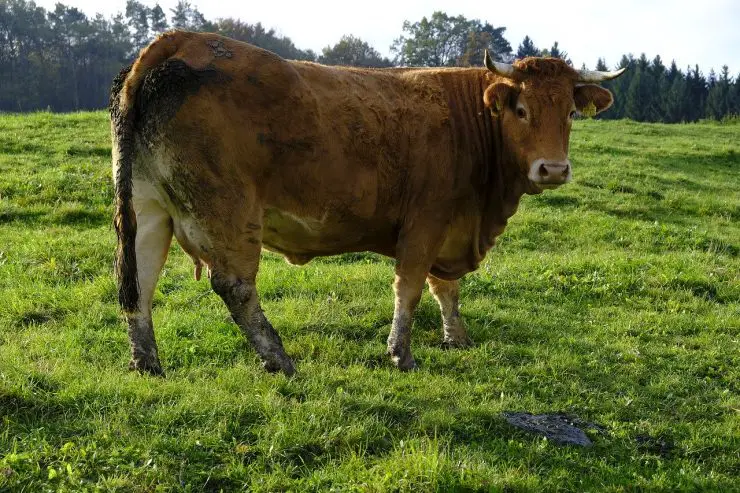If you’re used to using leaf compost and other types of fertilizers like the Epsom salt for your tomatoes, you’re probably wondering at this point if you can also make use of cow manure. If you’ve been wondering exactly that, then you’re in luck. This article is just for you, and who knows? You might learn something useful today.
In this article, we’ll be looking at cow manure in connection to tomatoes, and by the end, you’d know
- If cow manure is good for tomatoes
- The benefits of cow manure to your tomatoes
- How to compost cow manure
- When to apply cow manure to your tomatoes garden
Interested? Good, let’s get started
Is Cow Manure Good For Tomatoes?
The direct answer to that question is Yes!
Cow manure is an excellent fertilizer for your tomatoes. Unlike chicken manure, it is relatively low in nitrogen and can be trusted not to burn your plants.
It also has the ideal balance of nutrients, and even better, food eaten by the cow is digested adequately through its four stomachs, so you don’t have to worry about some seeds making it through.
Contents
Benefits of Adding Cow Manure to Tomatoes
Cow manure has so many benefits it poses to your tomatoes, here are some of them:
- Nutrient-Rich
Cow manure is exceptionally rich in essential nutrients needed by your tomatoes to your grow abundantly. The best part is that it has useful bacteria that help convert the nutrients in a much simpler form so that it can slowly seep into the soil without harming your delicate plants.
- Increases the Soil Water-Holding Capacity
We all know how essential moisture is to the soil, especially during hot seasons, when it becomes tricky knowing how much water your tomato plant needs.
Cow manure helps to enhance the water-holding capacity of the soil. That way, there would be little necessity for frequent watering of the plant, and the roots of your tender plant can use the retained nutrients and water when necessary.
- Environmentally-Friendly
Unlike other fertilizers, cow manure produces much fewer greenhouse gasses and helps eliminate pathogens and ammonia gas that are harmful to your plant. It also adds a substantial quantity of much-needed organic matter to your soil, enhancing the soil’s aeration.

How to Compost It
Organic manures like cow manure needs to be composted before adding it to the soil; that is the right way to make it into a nutritious fertilizer for your tender plants. How do you do this?
You can mix it with light materials like hay or a pile of straws; this, in addition to your garden debris and organic substances, got from your vegetable matter, will help compost your cow manure.
You can also add a bit of ash or lime to the pile. Make sure you take into consideration the size of your cow manure. If it’s too small, there won’t be enough heat, which is vital for composting, and if it is too large, then there won’t be enough air getting into the pile.
Turn the pile frequently to ensure that enough air gets into it and circulates. Composted cow manure, when added to your soil, helps to produce healthy plants.
When to Apply Cow Manure to your Tomatoes
The best time to use cow manure is before planting your tomatoes and after harvesting. When you apply it directly, it can damage your tender plants while promoting weed growth.
That’s why it is best to apply it long before planting so it can break down; the nutrients will be wholly absorbed by the soil, eliminating any threat it might pose to your plants.
How long does it take cow manure to compost?
For composting cow manure, it takes a couple of weeks for the compost to get set for use. If you don’t have space for making a compost pile, a good composter can suffice. Check our collection of composters and see if you’ll find something within your budget.
- Best Ariens Snowblower: How to Сhoose the Right One For You - December 1, 2022
- Best Track Snowblower: How to Choose the Best? - November 29, 2022
- Kentucky Bluegrass vs Perennial Ryegrass - October 7, 2022


Add comment